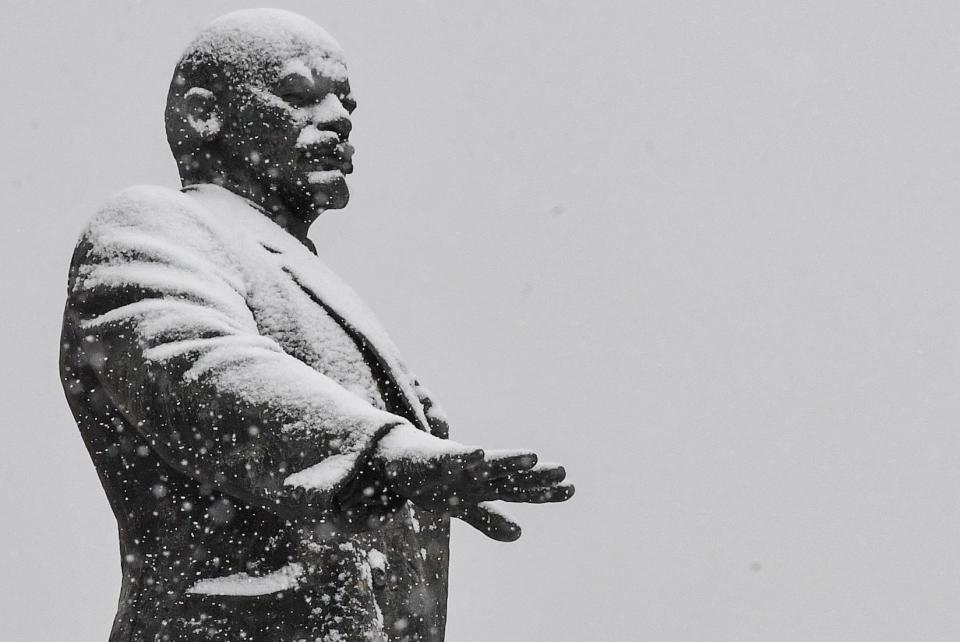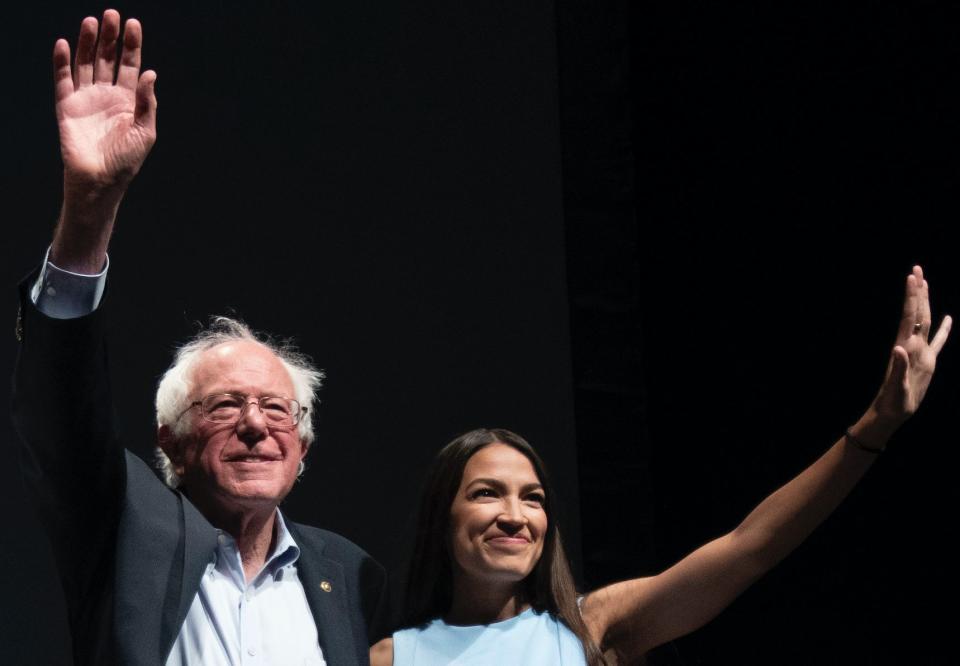Gundlach on U.S. socialism politics: 'There was a thing called the Soviet Union...'
Leading bond investor DoubleLine Capital CEO Jeffrey Gundlach said that the increasing usage of the term of “democratic socialism” by American politicians is ill-advised given the track record of countries that followed it.
“[Democratic socialism] puts the word democratic in front of the word socialism, because it sounds good, that at least you're voting for it, instead of being forced into it,” Gundlach told Yahoo Finance’s Julia La Roche in an interview this week. “But you know, socialism is not a very good way of building wealth, as shown by... hundreds of years of history, most recently down in Venezuela. That's all you have to look at.
[Full transcript of Jeffrey Gundlach’s appearance on The Final Round]
“I remember there was a thing called the Soviet Union, which had five year plans, and I don't think they're around anymore. So not a really good idea.”
The United Soviet Socialist Republic (USSR) collapsed in the early 1990s after the so-called Soviet Union was hit by severe weakness in its oil and gas industries alongside internal domestic and structural failures. Five year plans were policies of economic goals first instituted by Communist Party General Secretary Joseph Stalin in 1928.

Senator Bernie Sanders (I-VT) and Congresswoman Alexandria Ocasio-Cortez (D-NY) are the two most prominent proponents of democratic socialism and related policies. Both are particularly popular among younger Americans.
The White House had put out a report in October last year called “The Opportunity Costs of Socialism” that looked at the two types of socialism — and looked at the cases of the Nordic countries which have succeeded with a soft form of socialism, as well as Venezuela, which has also ended up with a crisis after decades of running a planned economy.
‘We cannot afford these things’
At the same time, the wealth inequality gap has exploded in the past few decades, with the top 1% taking home 21% of all income in the U.S., according to the Economic Policy Institute. The institute also estimated that CEOs today make 312 times more than their workers.
Ocasio-Cortez’s proposals include pushing the top marginal tax rate to 70% on income over $10 million, which she hopes will then fund her Green New Deal.

Gundlach, a billionaire himself, did acknowledge the altruistic motivation behind the thought process, saying that he thinks politicians like Cortez want to “stop enriching the wealthy who are already disproportionately.” He added, “[The] wealth inequality is pretty bad.”
However, according to Gundlach, policies veering toward democratic socialism aren’t the way forward.
As politicians like presidential hopeful Elizabeth Warren and Vermont Senator Bernie Sanders strive to get Medicare for all, free college tuition, and “all the other goodies that the socialists want to bring out,” Gundlach stressed, “we cannot afford these things without having a complete collapse of our standard of living as we know it.”
Aarthi is a writer for Yahoo Finance. Follow her on Twitter @aarthiswami.
Read more:
Trump is right about the Green New Deal
American voters increasingly want to tax the rich more
Follow Yahoo Finance on Twitter, Facebook, Instagram, Flipboard, LinkedIn, YouTube, and reddit.


